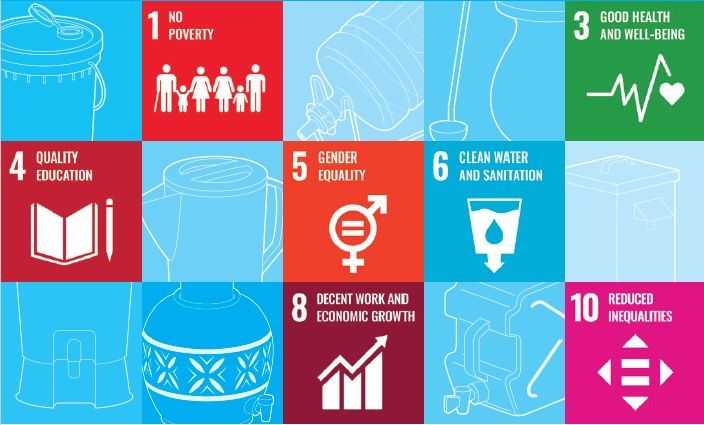
The Contribution of Household Water Treatment to the Sustainable Development Goals
The 2030 Agenda for Sustainable Development, adopted by all United Nations Member States in 2015, provides a shared blueprint for peace and prosperity for people and the planet, now and into the future. At its heart are the 17 Sustainable Development Goals (SDGs).
HWTS also makes significant contributions to the advancement of other SDGs. Similarly, there is growing use of HWTS technologies in institutions such as schools and health centres as point-of-use (PoU) treatment providing further contributions to the goals. This resource highlight the contribution of household water treatment and PoU to a range of sustainable development goals.
The Contribution of Household Water Treatment to the Sustainable Development Goals
The 2030 Agenda for Sustainable Development, adopted by all United Nations Member States in 2015, provides a shared blueprint for peace and prosperity for people and the planet, now and into the future. At its heart are the 17 Sustainable Development Goals (SDGs).
HWTS also makes significant contributions to the advancement of other SDGs. Similarly, there is growing use of HWTS technologies in institutions such as schools and health centres as point-of-use (PoU) treatment providing further contributions to the goals. This resource highlight the contribution of household water treatment and PoU to a range of sustainable development goals.
Format:
Adobe PDF
Select a language
Need help?
Can’t find what you need? Have more questions about a topic? Need advice on how to use a resource? Chat with a CAWST advisor.
Contact usAbout CAWST
CAWST is a Canadian charity and licensed engineering firm. We address the global need for safe drinking water and sanitation by building local knowledge and skills on household solutions people can implement themselves.